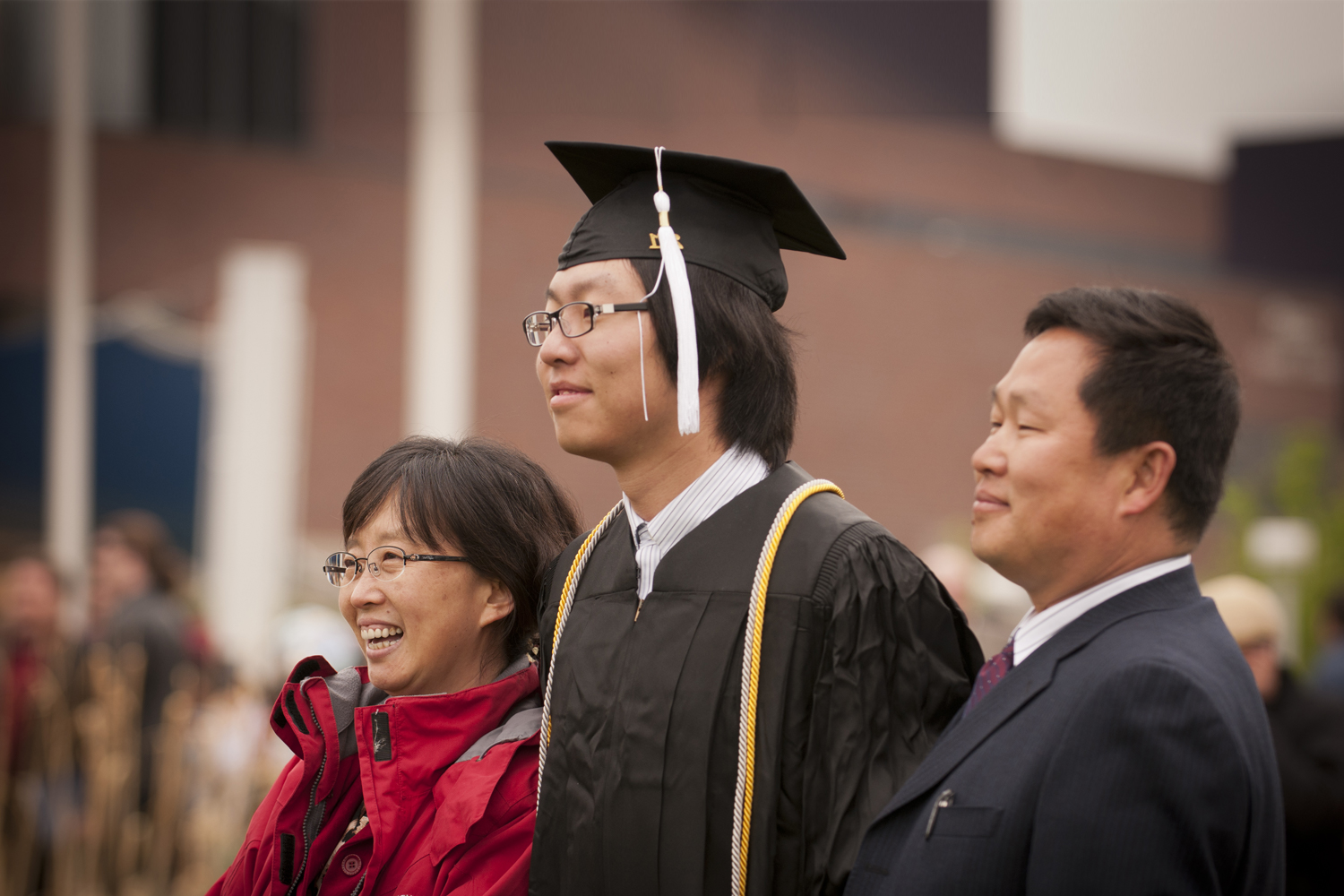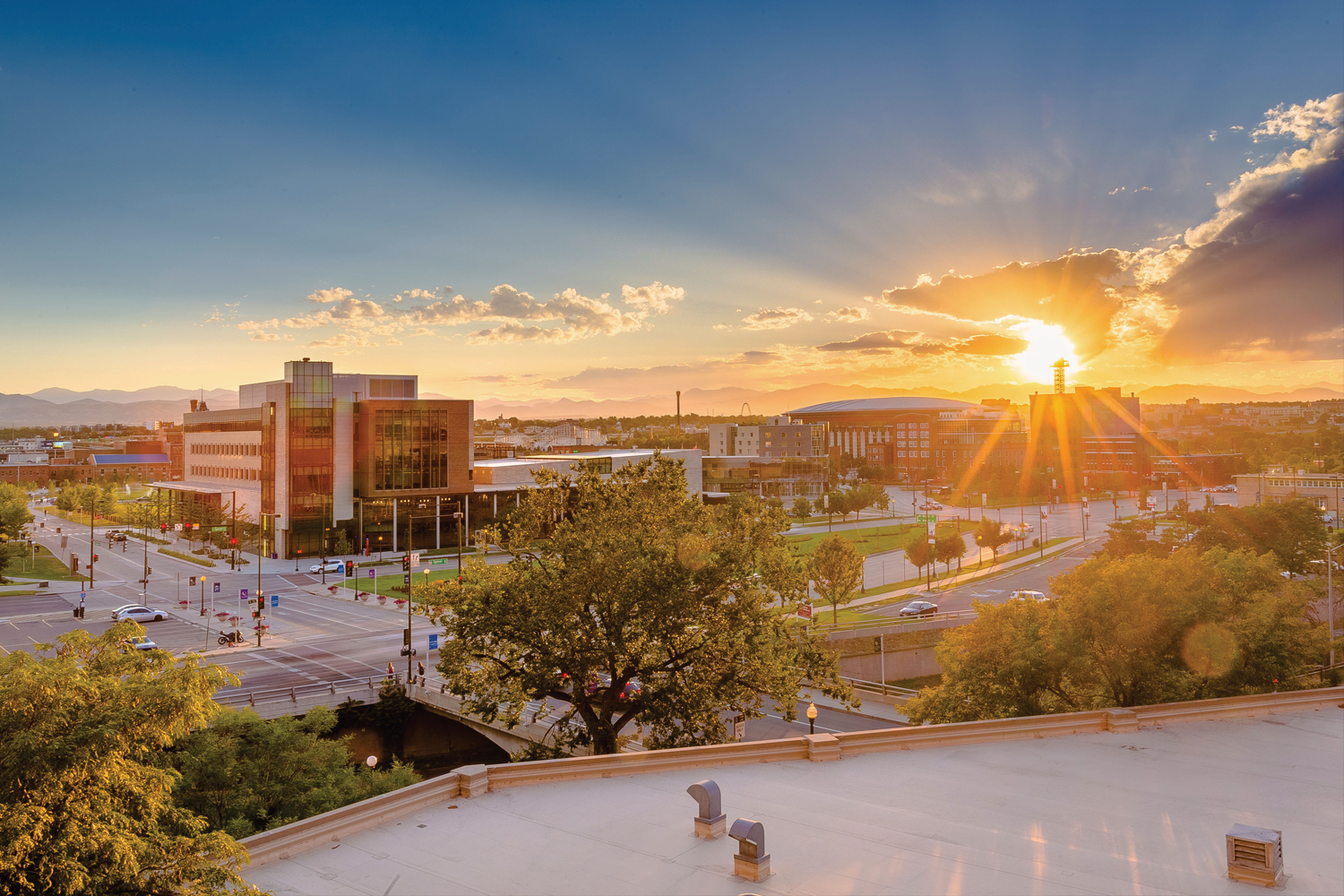University Partners With GCP in Korea
May 19, 2014
In May 2014, an agreement was signed between the University of Colorado Denver and GCP- Korea that formalized the start of an innovative new “1+3” program. In this new model, well-qualified Korean high school graduates can spend a year taking intensive college preparatory English classes at GCP’s Academy in Seoul. Upon reaching the required level of English language proficiency, they may begin CU Online courses taking courses designed especially for non-native speakers of English. Most students will be pursuing majors in business, liberal arts, science and engineering. Students can then travel to Denver to their complete second, third, and fourth year and complete their degree program at CU Denver.
This model will help in facilitating the entrance of more Korean students into the University of Colorado Denver.
John Sunnygard, Senior Director, International Programs, Office of International Affairs, explained, “Korean businesses and industry highly value linguistic and cultural competencies. The opportunity for their next generation of business leaders to study in a dynamic urban university such as CU Denver is viewed very favorably.”
Sunnygard traveled to Korea to meet with Sang Hyun Ryoo, President of GCP, and other GCP leadership to finalize the signing of the MOU (Memorandum of Understanding).
“Since Spring 2012, the University of Colorado Denver and GCP-Korea have built the true partnership step-by-step and have created an innovative education program. This CEP (Collaborative Education Program) will open up a new chapter in international education for all of our students,” said GCP President Ryoo.
The University of Colorado Denver is one of the first American universities to collaborate with a Korean school using this program model. GCP is a respected English language academy in Seoul, the capital city South Korea. GCP works very closely with high school students to prepare them to excel in the highly competitive Korean university testing standard. English language is frequently the highest barrier that Korean students face when they are seeking enrollment at an American university.
The Office of International Affairs (OIA) is working closely with the College of Liberal Arts and Sciences (CLAS) to bring these students quickly and successfully into CU Denver programs. In a 2013 assessment of the math, reading, and science knowledge of 510,000 fifteen year old students in 65 countries, Asian countries outperformed the rest of the world; Korea ranked 3rd in mathematics and 6th in science. (Source: OECD – Organisation for Economic Co-operation and Development.)
“Partnering with Korean institutions to grow our college’s educational programs in Asia is a fantastic opportunity for CU Denver. Korea is a dynamic powerhouse, and a key player in the new global economy,” said Tony Robinson, Associate Professor and Chair, who takes groups of CU Denver students to Korea.
University of Colorado Denver’s Department of Political Science. “Korean students are ambitious, talented and very hard working; there is deep interest in American culture and institutions all across Korea.” Robinson added that with this partnership, Korean students will have new opportunities to earn an American university degree while CU Denver will benefit from new global connections, both here and abroad.
OIA and CLAS are also collaborating with CU Online and CLAS to enhance courses in ways that bridge cultural differences and understandings. Korean students will be coming from a teaching environment that is more group-oriented, which is different from the individualistic learning context of American classrooms. American students are taught to have a lively discourse and to challenge idea; it is considered a normal part of the learning process. Helping international students adjust to a new culture and learning environment is one of OIA’s objectives in fostering student retention. For Koreans, a student’s education is about much more than an individual going to a university; it is about a whole family’s commitment; parents take their child’s education very seriously.
“When people ask me about the future of education, I like to point to programs like the GCP-Korea,” said David Thomas, Manager, Academic Technology and Media Production, University of Colorado Denver. “Bridging culture, bridging distance, leveraging our educational resources to meet emerging global needs, that’s what higher education looks like in the Internet age.
International students from Korea bring high GPA’s (grade point averages), diversity, and global perspectives to CU Denver classrooms. Through new educational delivery models developed by collaborations within the university and with international educational partners, international students will become more fully prepared to engage in CU Denver classrooms.
The University of Colorado Denver shares in the commitment to the student’s successful completion of their CU Denver degree programs and to a rich and rewarding educational experience in the United States.
The University of Colorado Denver welcomes Korean students in a variety of ways. The university is developing affiliation agreements with Korean institutions through programs in the university’s School of Public Affairs, the College of Liberal Arts and Sciences, and the Business School. Eight different Korean sponsoring agencies are currently sending students to CU Denver.






